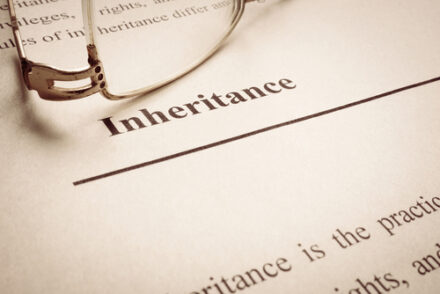
Challenging a gift to charity made in a will
13th March 2024 by Rob Kelly
Finding out that your loved one has decided to leave a gift of money or property to a charity in their will can sometimes come as a surprise, particularly if the charity is not one that was known to be close to their heart. It may also be quite distressing if the unexpected gift effectively operates to deprive you, or another relative, of some or all the inheritance you hoped to receive.
Knowing what to do when faced with this situation can be hard, but as Rob Kelly, expert dispute resolution solicitor with Laceys Solicitors in Bournemouth explains ‘Where you have concerns about the nature or potential impact of a charitable gift, it is vital that you seek legal advice so you are clear about where you stand and whether there is scope for you to get your loved one’s will overturned or varied.’
However, you need to act quickly as there are statutory time limits that apply when it comes to challenging a will. These may expire within as little as six months from the date on which the grant of probate is issued to your loved one’s executors.
Position of charities
Legacies and bequests made in wills make up a large proportion of many charities’ income, and fundraisers work hard to secure and maintain this valuable source of revenue. For this reason, you can expect any challenge you may seek to make to a charitable gift to be robustly defended.
It is also worth bearing in mind that charity trustees are under a statutory obligation to act in the best interests of the organisations they work for. This means that they will often be duty bound to try to preserve (and if necessary, recover) any money, property or assets which may have been left to them lawfully in a person’s will.
That said, trustees will assess each challenge they face on a case-by-case basis and where your grounds for challenge are strong – or where resisting a claim would be disproportionately expensive or damaging to them from a public relations perspective – then there may be scope for a deal to be done to address or allay your concerns without escalating matters further.
Grounds for interference
It is an established principle of English law that everyone has the right to leave their money, property and assets to whoever they please when they die. That said, there are also circumstances in which the law will intervene to override the wishes of a deceased person, and in turn to direct that the terms of their will should be amended or declared void.
For example, it may be possible to challenge the validity of a will that contains a charitable gift where there is evidence to show that:
- the legal formalities needed to create a valid will have not been met; or
- at the time the will was executed, the person making it lacked mental capacity; or
- the person who made the will did so without knowing or approving its content; or
- the person who made the will did so under undue influence; or
- the will is a forgery or was otherwise procured by fraudulent means.
It may also be possible, under the Inheritance (Provision for Family and Dependants) Act 1975, to have a will varied where it fails to make reasonable provision for certain family members or indeed other people who were reliant on the deceased for financial support.
Ambiguity in a will
Where the terms of a charitable gift are unclear, it may be possible to call into question the nature and extent of the gift that has been made. This can be seen in the recent case of Royal Commonwealth Society for the Blind v Beasant & Davies (2021), in which gifts of money had been left to 21 charities and where the amount available for distribution to them was unclear because of ambiguity in the wording of a clause involving another beneficiary.
The clause in question directed that what was referred to as the ‘nil-rate sum’ should be held on trust for the deceased’s friend, Mr Beasant – with the term ‘nil-rate sum’ being defined as the largest sum which could be given on trust for him without any inheritance tax becoming due.
The issue was whether this provision should be interpreted as meaning that Mr Beasant should receive an automatic payment of £325,000, which was the applicable nil-rate limit for inheritance tax purposes at the time of the deceased’s death, or whether it should instead be read as meaning that he should receive whatever sum (if any) was left over within this limit once other gifts – including those to the charities – had been paid out, and which would effectively mean that he would actually end up receiving nothing.
In this case the court ruled that it was the latter interpretation that should apply, meaning that Mr Beasant lost out to the charities’ benefit. However, there are cases in which decisions have gone against charities and so it is always worth seeking advice where it is arguable that a gift provision could be interpreted in more than one way.
How we can help
Our specialist wills, trusts and estate lawyers can advise you on the nature and effect of a charitable gift made in your loved one’s will and tell you quickly whether you have grounds to call the gift into question and to therefore make a formal challenge.
Where there are reasons for questioning the gift, we can open an early dialogue with the charity in question to explain your concerns and to see if there is anything that can be done to try to resolve matters amicably – which, in our experience, there usually will be.
That said, where legal action is required, we have the expertise to deal with any proceedings that may need to be issued and to ensure you emerge from these on the best terms possible.
To find out more, please contact Rob Kelly on 01202 377800 or r.kelly@laceyssolicitors.co.uk.
This article is for general information only and does not constitute legal or professional advice. Please note that the law may have changed since this article was published.



